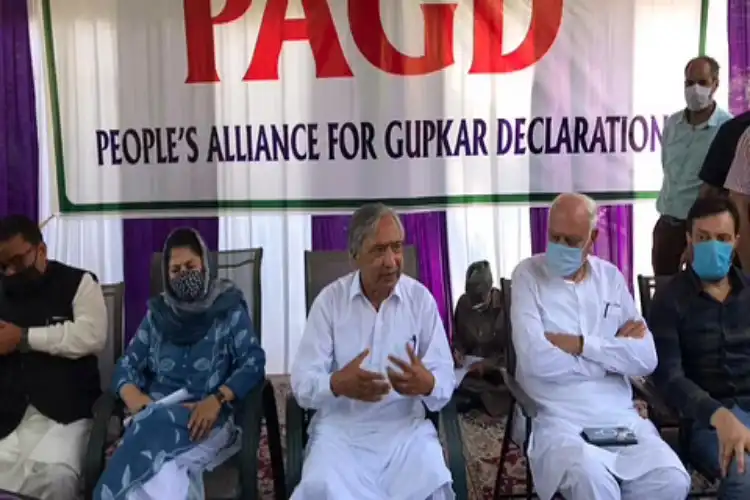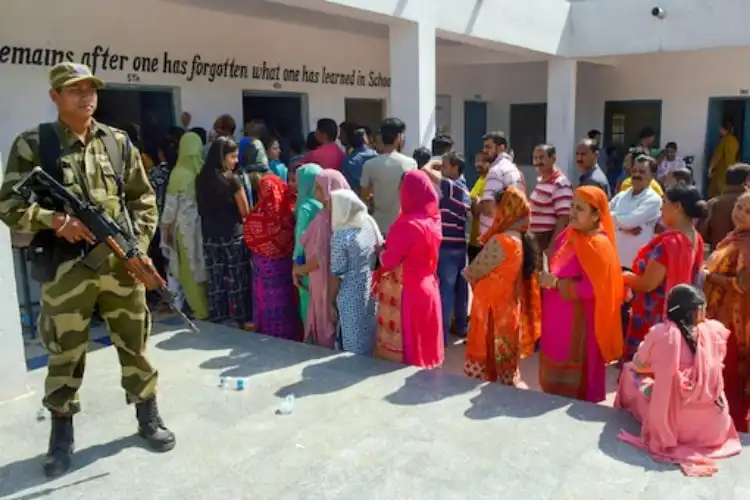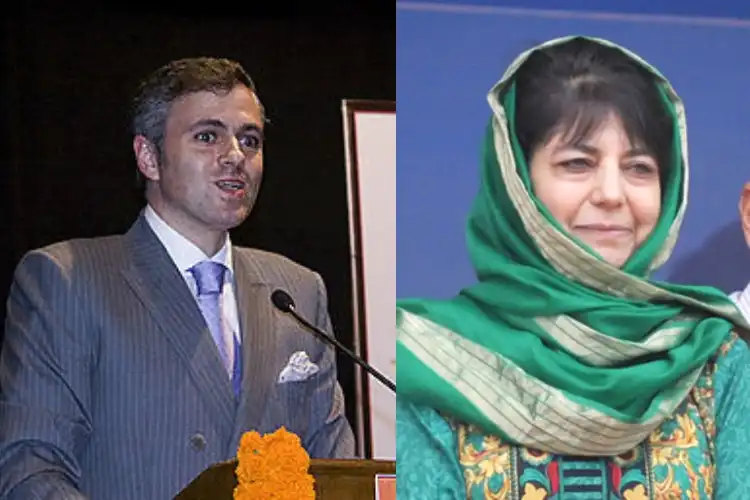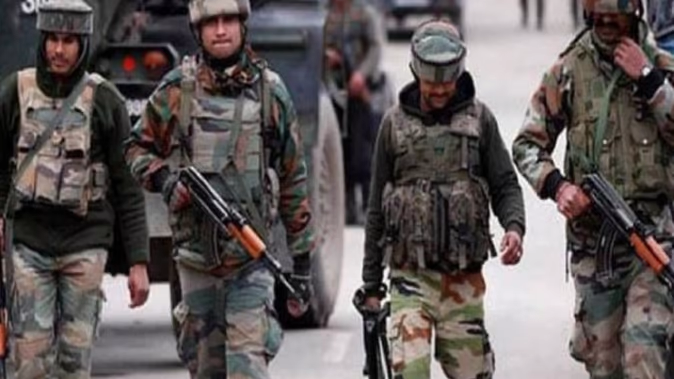Aasha Khosa/New Delhi
Old habits die hard and this adage is playing out as Kashmiri leaders are seeking to raise a controversy over the Election Commissioner’s announcement that an estimated 25 lakh new voters including the “outsiders” are likely to vote for the first time in J&K’s proposed Legislative Assembly elections.
The UT is all set to have its first election after reorganization and the end of the special status of the erstwhile State under Article 370 of the Constitution three years ago. Preparations for the elections possibly by the year-end, including the summary revision of electoral rolls, are going on.
News Analysis
It was in this context that Chief Electoral Officer Hirdesh Kumar said that he expects a large number of new voters including the 18-year-olds and the ‘outsiders’ who stood barred under the since repealed J&K State Constitution, to get registered as voters in J&K.
"The special summary revision of electoral rolls is taking place for the first time after January 1, 2019, and so we are expecting massive changes in the voter list given the fact that a large number of youngsters have attained the age of 18 or 18 plus over the past three years," Kumar said.
What touched a raw nerve of leaders was his remark that “no domicile certificate is needed for people to enroll as voters in J&K.”
He said, "After the abrogation of Article 370, many people who were not enlisted as voters in the erstwhile state of J&K are now eligible to vote and in addition, anyone who is living ordinarily can also avail the opportunity to get enlisted as a voter in J&K by the provisions of representation of the Peoples Act."
People voting in Panchayat elections in J&K
This gave the much-needed fodder to leaders like Mehbooba Mufti, who quickly linked the move to “proposed demographic changes and BJP’s plan to alter the Muslim-majority character of J&K.”
Even former chief minister of National Conference Omar Abdullah remarked, "Is the BJP so insecure about support from genuine voters of J&K that it needs to import temporary voters to win seats?
However, Mehbooba, a former chief minister who has been a Member of Parliament for two terms went hammer and tongs against New Delhi, leveling allegations that “They have already rigged the election by redrawing the boundaries of the constituencies (delimitation) least realizing that what Kumar said amounts to the simple implementation of the law of the land.
People like Mehbooba, who are probably yearning to rake up a controversy in J&K that has not seen any protests, stone pelting, or flare up in violence post the big ticket changes of August 5, 2019, seem to use old tricks up their sleeves to create fear among Kashmiri Muslims of “their religion and identity being in danger.”
Mehbooba is closing her eyes to the basic fact that the situation when under the J&K’s statute lakhs of Indians were barred from voting in the Assembly election as only the “permanent residents” had the right to vote is gone and J&K is today governed by the same law that applies to the rest of the country.
Even the National Conference has fallen for the bait thrown by Mufti for raising the passions on “Kashmiri Muslim identity” as Farooq Abdullah has called for the meeting of the Peoples’ Alliance for Gupkar Declaration, a loose conglomerate of Kashmir-based political parties to discuss the issue.
Omar Abdullah and Mehbooba Mufti
The bait is so powerful that even leaders considered close to New Delhi like Altaf Bukhari, Apni Party, Sajjad Lone (Peoples’ Conference) and Member of Parliament Muzafar Hussain Baigh have asked the Centre to explain what it intends to achieve through “giving voting rights to outsiders.”
The fact of the matter is that all the Kashmiri leaders whose politics have been centered around raising fears among Kashmiri Muslims over Delhi’s designs are conveniently ignoring forgetting that J&K’s exclusive laws are no longer applicable.
Who can vote in the elections is governed by The Constitution (Sixty-first Amendment) Act, 1988, which lowered the voting age in the Lok Sabha and the Legislative Assemblies from 21 to 18 years. This was done by amending Article 326 of the Constitution, which concerns elections to the Lok Sabha and the Assemblies.
The Indian law - the Representation of the People Act 1950 and 1951 (to J&K), any citizen of India who has attained the qualifying age and is ‘ordinarily residing at a place is eligible to be registered in the electoral roll of that place, if not disqualified otherwise”.
Security Forces get right to vote in J&K
This means that non-locals can vote in the Assembly elections in J&K for the first time and that domicile and permanent resident certificates would not be needed anymore to be enlisted as a voter. As it's the norm, they will have to fill out forms to cancel their names from the voters' list registered in other parts of the country and will be rechecked by linking these with AADHAR cards electronically.
Political parties are unable to reconcile to the changed situation and hence attempted fear-mongering.
The most dangerous aspect of this is that terror organizations like TRF (The Resistance Force) a frontal organization of the Hizbul Mujahideen, has jumped into the controversy and issued a threat to the outsiders seeking to apply for becoming voters in J&K.
Interestingly, even security forces deployed in peace stations –mainly the Jammu region – will be able to register as voters for the Assembly elections and the leaders including that of Congress are fearing the “outsiders” participation will tilt the balance in favour of the BJP in the elections.
Kumar also said the Commission is making grand efforts to provide an "error-free" final voters list by November 25.
Kumar explained to local media persons that, J&K residents working in security forces and posted outside the Union Territory can register as service voters and avail the facility of the postal ballot".




